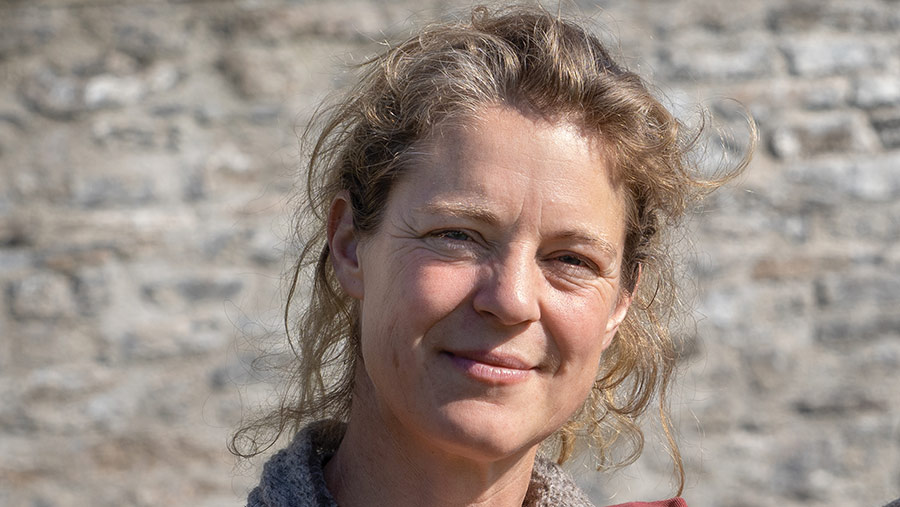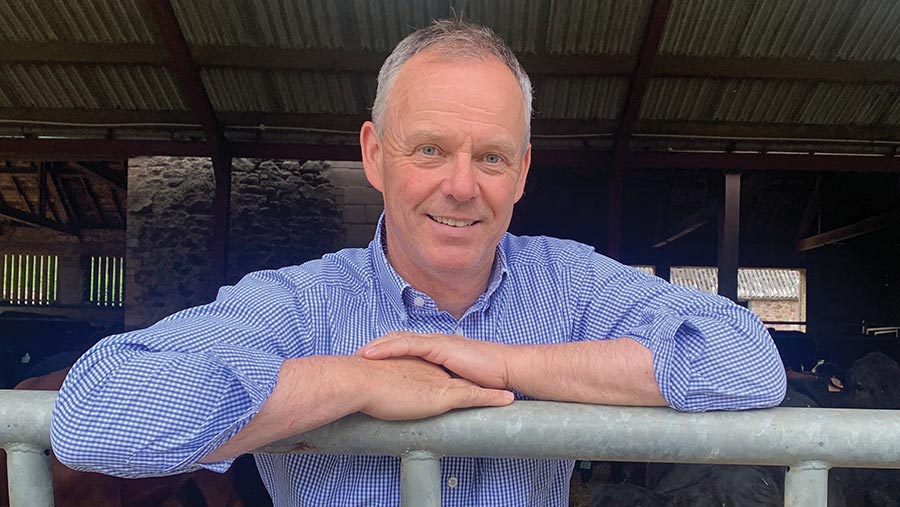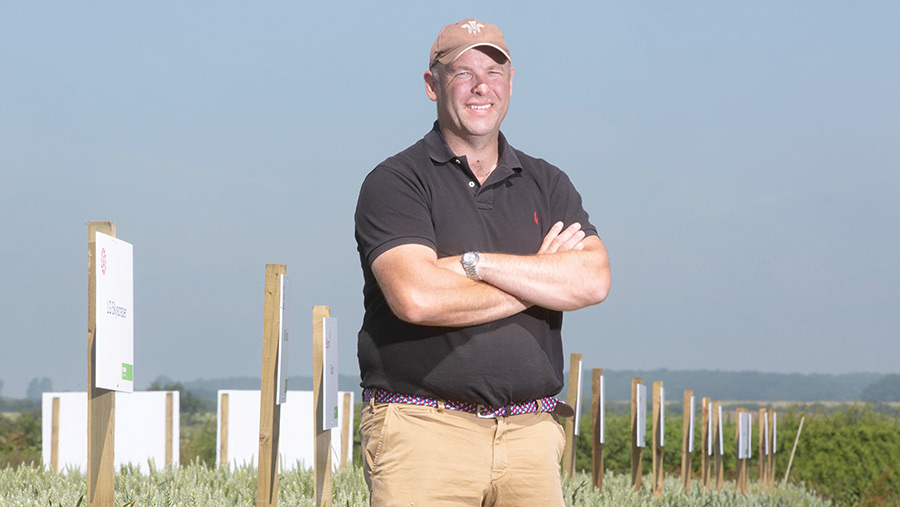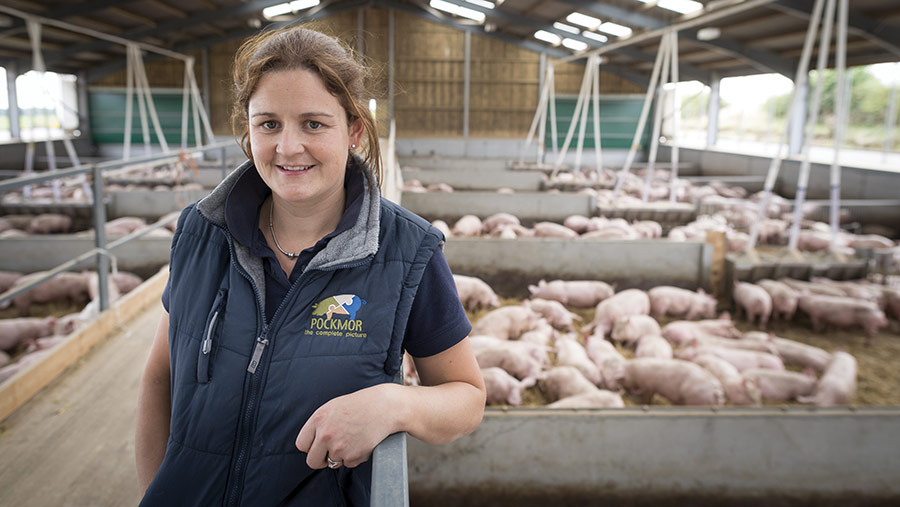Nuffield Conference: Two winners for top scholarship award
The Nuffield Bullock Award recognises scholars who have made the best use of their Nuffield award in the 10 years since they were accepted on to the study tour scheme.
This year, the judges decided to honour two entrants jointly, in recognition of how each of them has made a significant contribution to the farming industry.
We meet the winners and the runners-up.
See also: Livestock’s contribution to society celebrated in new film
Bullock award judges
- Stephen Fell Former chairman, Nuffield UK and Leaf
- Meryl Ward MBE Former chairwoman of Lincolnshire Rural Support Network and AHDB Pork, current chairwoman of Lincolnshire Rural and Agricultural Chaplaincy
- Andrew Meredith Editor, Farmers Weekly
Winners
Jen Hunter

Jen Hunter © Kathy Horniblow
“Shepherdess, businesswoman and mother to two teenagers,” is how Jen Hunter describes her everyday life.
However, this fails to capture the enormous success she has enjoyed in marketing wool, a product most sheep farmers regard as burdensome and a net cost to the business.
Her Nuffield scholarship a decade ago, titled Growing and marketing fine wool in native colours, cemented her decision to find value in the overlooked fibre, and Jen has worked in the intervening decade to develop a multitude of different outlets for the product, from insulation to artisanal cloth.
She now earns £6-£20/kg for raw greasy fleece, guaranteeing a margin 100 to 1,000 times greater than the average UK sheep farmer receives at farmgate price, with the business making 40% of its total income from wool last year.
Her 10 weeks of travel, spanning 10 countries across three continents, were critical in revealing that being successful in this niche market required a reworking of the whole production system to produce a product of far higher quality than is typical on most sheep farms.
Dual-purpose breed
This reworking includes breeding a specialist dual-purpose breed to produce high quality meat and wool, managing them to limit fleece contamination, blade shearing to remove wool as carefully as possible, and ensuring the highest standards of wool handling thereafter.
But in the true spirit of Nuffield, this award-winning sheep farmer is not only building a successful enterprise against the odds, but is championing proper care of the product to farmers, shearers, textile workers and students.
She and her partner, Andrew Wear, have flung open the gates of their farm to droves of people who want to come and learn more about blade shearing and wool handling, hosting visitors from around the UK and from ten overseas nations including the Netherlands, the US, France and Ireland.
In addition, she has travelled far and wide to both learn and share her insights, speaking at myriad farming events and to non-specialist audiences, including the Oxford Real Farming Conference, Groundswell, Countryfile and the National Trust.
Jen and Andrew were named Sheep Farmers of the Year at the 2022 Farmers Weekly Awards. The judges praised their low-input system and sharp commercial mindset.
Robert Neill

Robert Neill © Robert Neill
Borders farmer Robert Neill has spent a decade attempting to break down silos in the beef industry after a Nuffield scholarship looking at the merits of electronic identification (EID) in cattle.
He discovered that the UK’s passport system, while effective, was comparatively costly to maintain and slow to update, whereas EID tags enabled databases to be updated more swiftly and at a lower cost.
That a real-time cattle movement database is now in operation in Scotland is in no small part due to his tireless work, and he continues to campaign for EID tags to be mandatory in cattle and for paper passports to be removed.
The expertise granted to him by the study tour and his willingness to be a convener of the many different parties that would be required to make such a change happen have seen his farm welcome a stream of politicians, civil servants and farmers to see and discuss the technology.
An enthusiastic uptake and use of it would enable a better flow of data between farmers, processors, retailers and consumers in the supply chain, he says.
This in turn would improve traceability, help farmers make better breeding decisions, and offer significant health and safety benefits compared with livestock handlers having to manually read tags on farm and in livestock markets.
Productivity gains
Use of ultra-high-frequency tags even brings the possibility of farmers and livestock markets being able to read multiple tags at once from a distance of up to 12m, holding out clear productivity and safety benefits.
“We are really struggling to get youngsters to work with livestock,” says Robert, who believes better use of technology will have to play a role in shoring up this vital part of the food sector.
Like many others, he credits his Nuffield tour with giving him the confidence to speak in front of a crowd, an ability which has since opened many other doors.
The former Farmers Weekly Farmer of the Year has also taken on a number of other industry-leading roles, including being a board member and chairman of the Agriscot event, chairing his local NFU Scotland branch, and sitting on the union’s national Livestock committee.
Runners-up
Russell McKenzie

Russell McKenzie © Tim Scrivener
Success with no-till under any conditions was the punchy title of Russell McKenzie’s Nuffield report a decade ago. It put him among the first UK farmers to be prominently associated with the renaissance of the light-touch arable methodology.
The study tour gave him the platform and confidence to go on to be an AHDB monitor farmer which, in the best Nuffield tradition, gave him an opportunity to share what he had learned with the many visitors to the estate where he was farm manager.
What has been achieved on heavier soils, where the challenge to no-till is often the toughest, is particularly compelling, with in-field comparison trials over multiple years of establishment under various cultivation methods on different varieties and at different levels of crop nutrition.
He has presented these findings to many farming and academic audiences, including the British Society of Soil Science.
Now working on the family farm, Russell continues to conduct research into many aspects of arable productivity on his own crops and as a consultant to others, alongside sitting on the AHDB Cereals and Oilseeds Council and the Recommended List steering committee.
Kate Moore

Kate Moore © Jim Varney
A career-long passion for pig welfare was bolstered by a Nuffield scholarship for Yorkshire farmer Kate Moore, who takes responsibility for finishing pigs and the farm’s own feed mill, alongside sister Vicky, who heads up the business’s pig breeding operation.
Yet it was the pig price crisis in 2021 that propelled them into the spotlight when they decided to launch a protest at the Conservative Party conference to raise awareness of the growing backlog of finished pigs on farm amid delays by abattoirs in taking them.
The resulting media coverage granted them an audience with Defra ministers, MPs, local authorities, and others, helping them to champion the industry in one of its darkest moments as the excess pig numbers threatened animal welfare and pushed farmers into steep losses.
Alongside the support of her family, Kate credits her Nuffield network as being a vital reservoir of support and advice during the intense and emotional campaigning period and after.
She continues to act as a champion for independent pig producers, as well as working to grow the family business in a sector which has seen further extreme price pressure subsequently.
